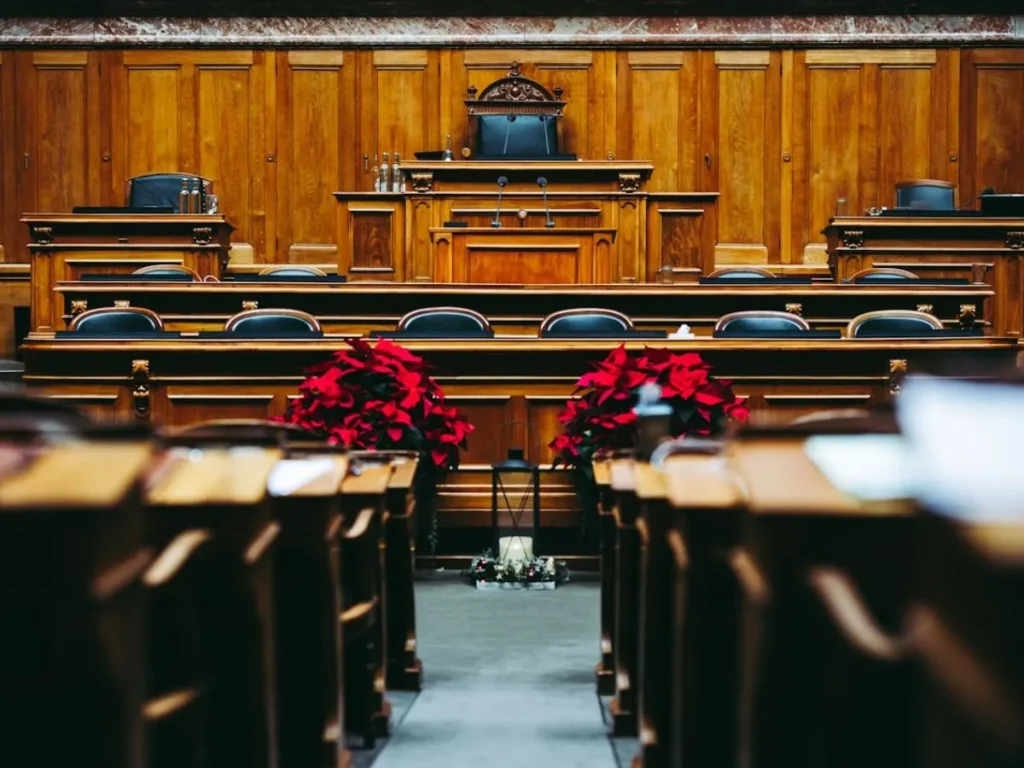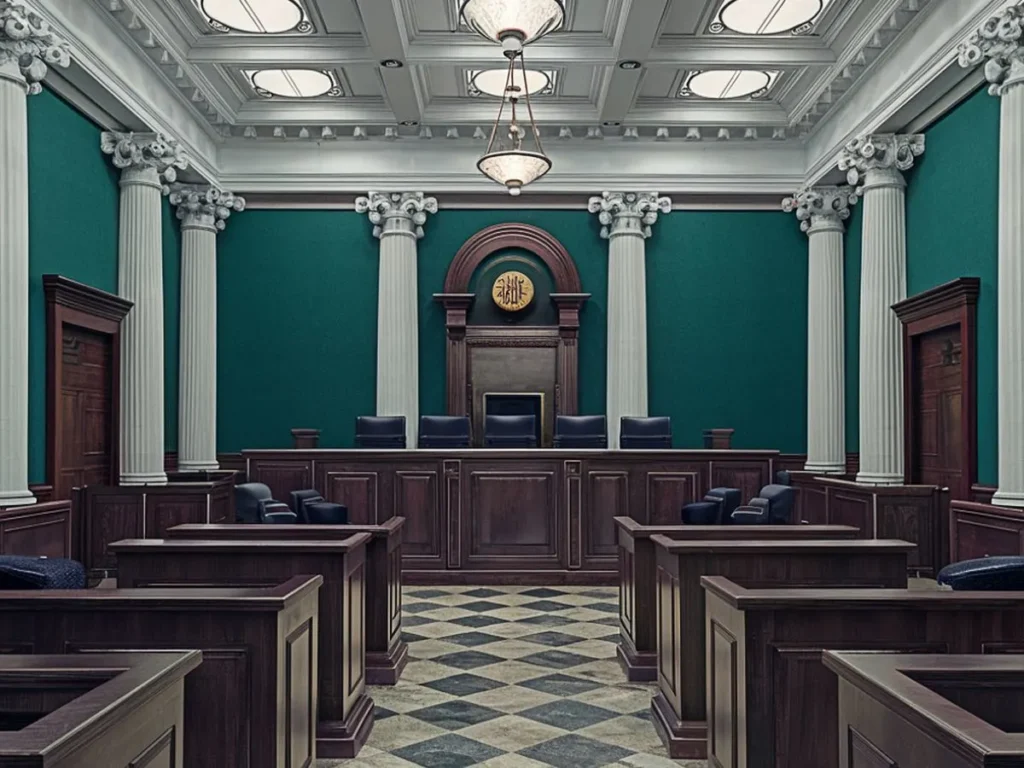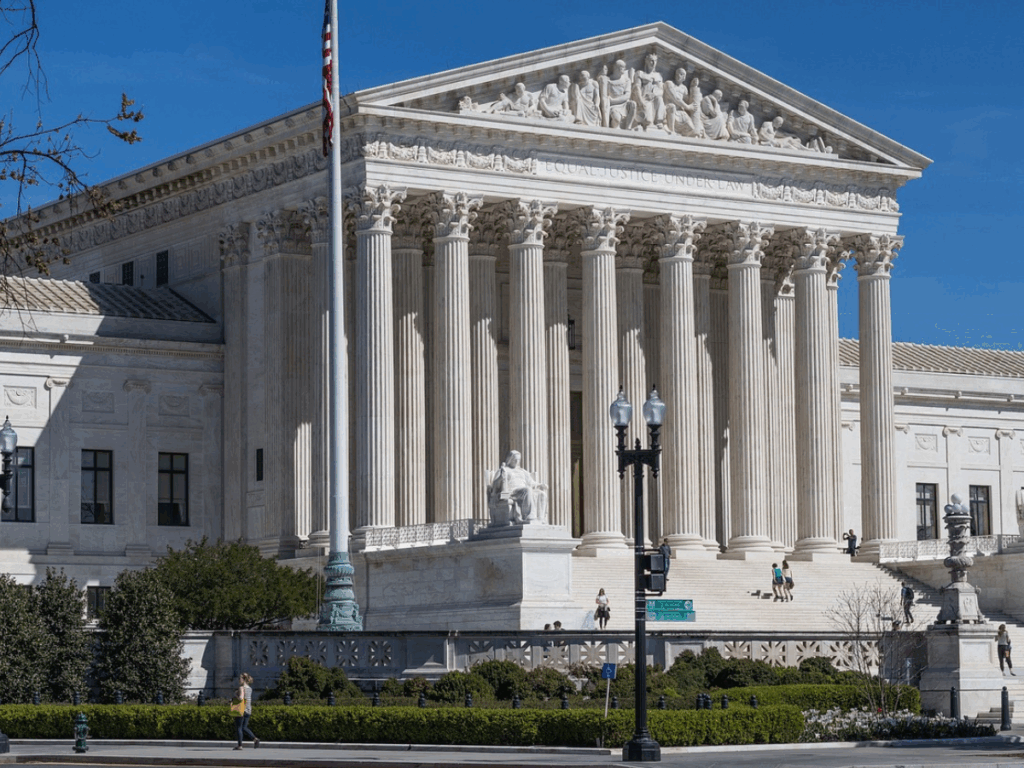Amber Heard defamed Johnny Depp in a 2018 Washington Post op-ed where she described herself as a victim of domestic abuse. Although she didn’t name Depp, he claimed that the consequence was clear and harmed his reputation and career. This defamation law case garnered immense global media attention, and the ruling was in favor of Johnny Depp. As a result, Amber Heard paid $10.35 million in total compensation for the estimated loss of $22.5 million due to the damage caused by her false allegation. This blog post will look at defamation laws around the world in 2025, with a focus on the United States, the UK, India, and Pakistan.

Table of Contents
What is Defamation?
If someone falsely accuses you of online fraud and your business begins to lose customers, it is not a joke but a clear-cut case of defamation. The law of defamation protects an individual’s reputation and the honor of a person from false and damaging statements. In simple terms, defamation involves making false statements about someone that harm their reputation.
Two Types of Defamation:
There are two types of defamation, which are discussed below;
- Libel is a Written defamation or Defamation in published form (like a false newspaper article, blog post, or tweet).
- Slander is a Spoken defamation or Defamation in spoken form (like spreading lies about someone during a speech or conversation).
Both of these types cause harm, but contempt of court is taken more seriously because written words last longer and can reach a wider audience. There may be a civil defamation suit or a criminal defamation case, depending on the circumstances. Some countries consider defamation a public wrong, while others treat it as a private dispute.
Real-Life Example:
Elon Musk called a British cave diver a ‘pedo guy’ on Twitter, prompting the diver to sue him for defamation. The tech mogul won the case, but it highlighted how a single tweet can trigger a high-profile legal battle. Defamation is often associated with free speech, but it is false speech that causes real harm.

Defamation Law in Various Important Countries:
1. Defamation law in USA:
In the United States of America, free speech isn’t always free; defamation law strikes a rare balance between protecting honor and defending the US Constitution’s First Amendment, which guarantees freedom of speech. Defamation Law in the United States of America is distinct from most other legal systems due to the mentioning of such freedoms in the Constitution.
New York Times v. Sullivan (1964):
This U.S. Supreme Court case changed the trajectory of defamation law, with a ruling that public officials cannot win a defamation lawsuit unless they prove actual malice. Actual Malice means that a false statement was made intentionally, knowingly, or with reckless disregard for whether it was truth or false. Since then, the actual malice standard has expanded to include notables such as politicians and celebrities, making it harder for them to succeed in defamation cases. In essence, the heavy burden of proof lies on the shoulders of the plaintiff, especially in the cases of public figures.
Defamation Law in Different States of the US:
There is no single centrally administered law related to defamation in the US. Therefore, different rules and regulations exist in various states. Some of the prominent state laws are given below:
a. California defamation law:
In California, a solid safeguard for journalists under anti-SLAPP laws or Strategic Lawsuits against Public Participation laws is present. However, it still provides remedies for false online reviews and media statements.
b. Florida defamation law:
Florida state has empowered private individuals to sue for defamation more easily than public figures. There is no criminal defamation law.
c. Illinois defamation law:
Recognizes various types of defamation (such as accusing someone of a crime) and provides for punitive damages.
d. Michigan defamation law:
The expression of error is required, with special considerations for public discourse.
e. Massachusetts defamation law:
The Massachusetts Courts distinguish between false statements of opinion and facts.
f. Indiana defamation law:
The statute of limitations is short (1 year), and it recognizes both slander and libel.
g. Pennsylvania defamation law:
It emphasizes intent; the truth is a powerful defense.
h. Utah defamation law:
In certain rare cases, civil and criminal actions are permitted in the jurisdiction of Utah.
i. Arizona defamation law:
In Arizona, Defamation and slander are addressed, with specific rules for media outlets.
j. New York defamation law:
High-profile lawsuits are common in New York and anti-SLAPP legislation was recently expanded to protect against frivolous defamation claims.
Online Defamation Law In US:
Online defamation law has become a critical legal frontier in the age of information and technology (IT). A tweet, blog post, or YouTube video can go viral and cause significant damage to someone’s reputation. Traditional libel laws are now applied to digital platforms in many states, including California, New York, and Florida. In many cases, not only individuals but also platforms and media outlets can be held accountable for such harmful acts.

2. Defamation Law in the United Kingdom:
In the United Kingdom, reputation is given significant importance by treating it as a right that deserves strong protection. Often, defamation places a greater burden on the person making the accusation than on the alleged victim.
Defamation Act 2013:
The UK government has passed the Defamation Act 2013, which reformed many aspects of defamation law in England and Wales. The following are some of its key features:
a. Public Interest Protection:
If the publisher made a statement on a matter of public interest and believed it to be true, it may be protected even if it turns out to be false.
b. Jurisdiction Limits for Defamation Cases:
As per the Act, foreign claimants are prevented from bringing defamation cases in England unless there is reason to believe that England is clearly the most appropriate place to bring the claim.
c. Serious Harm Threshold:
The Act make the claimants duty-bound to show that the statement caused or is likely to cause serious harm to reputation. For instance, for companies, this means proving actual or likely serious financial loss. Also, a relevant example is the Amber Heard and Johnny Depp case, where Depp claimed that he had lost the projects of $22.5 million after the abusive allegations made by Amber Heard.

3. Defamation Law in India:
Defamation in India is not just a private dispute; it can also lead to imprisonment. Unlike the UK and US, where defamation is typically a civil matter, but, in India, defamation can be pursued in both civil and criminal courts.
Civil Defamation:
It is a tort where the aggrieved party can sue for damages in the form of monetary compensation.
Criminal Defamation:
It is an offense under criminal law (Indian Penal Code) where the accused can be prosecuted and imprisoned.
Here is the legal breakdown:
a. Section 499 IPC:
Whoever by words either spoken or intended to be read, or by signs or by visible representations, makes or publishes any imputation concerning any person intending to harm, or knowing or having reason to believe that such imputation will harm, the reputation of such person, is said except in the cases hereinafter excepted, to defame that…
b. Section 500 IPC:
Whoever defames another shall be punished with simple imprisonment for a term which may extend to two years, or with fine, or with both.
These sections apply whether the defamation is written (libel) or spoken (slander).
Subramanian Swamy v. Union of India (2016):
This is a landmark judgment that questioned criminal defamation. Indian politician Subramanian Swamy challenged the constitutional validity of criminal defamation, claiming it violated freedom of speech under Article 19(1) (a) of the Constitution of India. The decision went against the politician, and the Supreme Court of India upheld Sections 499 and 500 of IPC, ruling that protecting a person’s reputation is a reasonable restriction on free speech, the right to reputation is part of the right to life under Article 21 of the Indian Constitution.

4. Defamation Law in Pakistan:
Pakistan has made significant strides in respect of defamation laws. The legal system recognizes both criminal and civil remedies for defamation, creating a layered and sometimes intimidating landscape.
a. Defamation in Criminal Status:
Similar to India, criminal defamation law in Pakistan includes provisions in the Pakistan Penal Code of 1860.
The exact wording of these sections is given below:
i. Section 499 PPC:
Whoever by words either spoken or intended to be read, or by signs or by visible representations, makes or publishes any imputation concerning any person intending to harm, or knowing or having reason to believe that such imputation will harm, the reputation of such person, is said except in the cases hereinafter excepted, to defame that…
ii. Section 500 PPC:
Whoever defames another shall be punished with simple imprisonment for a term which may extend to two years, or with fine, or with both.
These sections cover verbal, written, and even symbolic gestures—whether in print, speech, or public display. The emphasis is on intent and reputational damage, particularly when the accused cannot prove the veracity of their claim.Whoever defames another shall be punished with simple imprisonment for a term which may extend to two years, or with fine, or with both.
These sections cover verbal, written, and even symbolic gestures, whether in print, speech, or public display. The emphasis is on intent and reputational damage, particularly when the accused cannot prove the veracity of their claim.
b. Defamation in Civil Status:
When you seek monetary compensation rather than criminal punishment, there is the Defamation Ordinance, 2002. It empowers individuals to sue for damages in civil courts when someone defames them through magazines, newspapers, websites, or even word of mouth. Both libel and slander are recognized by the ordinance, and the Court can award compensatory damages and in some cases, even apologies are ordered. The ordinance also offers a summary trial to speed up the legal process.
c. Defamation in Online Status:
In the world of information and technology, online platforms have become the new battleground for reputational battles. Pakistan enacted the Prevention of Electronic Crimes Act (PECA), 2016, to address such online issues. Section 20 of PECA addresses offenses against dignity, which include online defamation, punishable by up to 3 years imprisonment, a fine of Rs. 1 million, or both. It is also applicable to social media posts, comments, videos, memes, and private messages.

Defamation Law Comparison: U.S. vs. UK vs. India vs. Pakistan:
| Feature / Country | United States | United Kingdom | India | Pakistan |
|---|
| Type of Offense | Civil only | Civil only (post-2013 reforms) | Civil & Criminal (IPC Sec. 499–500) | Civil & Criminal (PPC Sec. 499–500, PECA 2016) |
| Free Speech vs Reputation | Strong bias toward free speech (First Amendment) | Stronger protection of reputation | Emphasis on both, but free speech restricted under Art. 19(2) | Cultural bias towards honor/reputation, less speech protection |
| Burden of Proof | On plaintiff to prove actual malice (public figures) | On defendant to prove truth, plaintiff must show serious harm | On plaintiff; criminal requires proving intent to harm | Similar to India; intent and harm to reputation matter |
| Key Law / Provision | No federal law; governed by state laws + First Amendment | Defamation Act 2013 + Common Law | IPC Sections 499 & 500; civil tort via case law | PPC 499 & 500, Defamation Ordinance 2002, PECA 2016 |
| Notable Case | New York Times v. Sullivan (1964) – Actual Malice standard | Reynolds v. Times Newspapers; reforms via Defamation Act 2013 | Subramanian Swamy v. Union of India – upheld criminal defamation | Various PECA/celebrity-related cases |
| Online Defamation | Covered under state tort law, limited federal regulation | Covered under Defamation Act 2013, some protections for hosts | Increasing concern; IT Act references unclear | Explicitly addressed via PECA 2016 (Sec. 20) |
| Punishment / Remedy | Monetary damages, often high in libel cases | Monetary damages, apologies, retractions | Civil: damages; Criminal: up to 2 years + fine | Civil: damages; Criminal: up to 3 years (PECA) + fine |
| Libel Tourism? | Rare | Common before 2013 reforms | No | No |
| Defenses Allowed | Truth, Opinion, Fair Comment, Privilege | Truth, Honest Opinion, Public Interest | Truth, Good Faith, Public Conduct | Truth, Public Good, Good Faith |
Conclusion:
Defamation is widely recognized as a serious issue that can harm personal, professional, and public reputations. To combat it, countries ranging from Europe to Asia, Africa to the Americas, have developed effective legal frameworks. These laws give victims the ability to seek justice and hold people accountable for making false and damaging claims.
Read also;
What is Live-In Relationship? Its Meaning, Definition and Legal Status
Scales of Justice: Symbol of Justice
History and Context of Let’s Kill all the Lawyers by Shakespeare
Justice Delayed is Justice Denied in 2025
The Meaning, History and Symbol behind Lady Justice Statue
5 Reasons Why Judges Break Pen After Signing Death Sentence
Can you go to jail for defamation of character in the USA?
Yes, you can go to jail for defamation of character in rare and extreme cases in the USA.
Is defamation legal in the US?
Under US law, a defamation plaintiff can recover compensatory damages for ‘actual injury’ without proving ‘actual malice’, but constructive and punitive damages require proof of this higher level of fault.
Are defamation cases hard to win in the US?
Winning a defamation lawsuit is difficult because the plaintiff must prove complex elements of their case while avoiding numerous defamation defenses. This article discusses some of the standard defamation defenses, such as truth and privilege.
What is required to win a defamation lawsuit in the US?
Injury. To win a defamation lawsuit, the plaintiff must demonstrate that the statement caused harm to the target of the statement. This implies that the statement must have harmed the subject’s reputation.
Is insult a crime in the USA?
While some believe that the First Amendment protects libel, there are limitations to free speech. Typically, these limits include libel that offends a person’s conscience and causes mental anguish.
What are the five elements of defamation?
The five elements of defamation are: the statement must be false, it must be communicated or “published” to a third party, it must be defamatory (i.e. it damages the person’s reputation), it must refer to the plaintiff (the person suing), and the defendant must have acted negligently, if not maliciously.
Here’s a detailed breakdown:
1. False statement: The statement should be clearly false.
2. Publication: The defamatory statement must be shared with a third party, not just the plaintiff themselves.
3. Defamatory nature: The statement should harm the plaintiff’s reputation in the eyes of a reasonable person.
4. Reference to the plaintiff: The statement must be made by or about the plaintiff and clearly identify them as the subject.
5. Mistake: Depending on the jurisdiction and nature of the plaintiff, the defendant must have made a reckless or malicious statement, either knowing it was false or recklessly disregarding it, according to a LII guide.
For example, if someone falsely claims that a business is failing and the statement is communicated to potential customers, causing damage to the business’s reputation, and the person making the statement knew it was false or acted negligently in making the statement, it may be considered defamation if the other elements are also met.
What are the defenses to defamation?
The most common defamation defenses include truth, consent, privilege, and statute of limitations. Perhaps the most obvious aspect of a defamation action is the requirement for falsehood. In other words, to prove defamation, the public statement about the plaintiff must be false.
What happens in a defamation case?
In the most basic sense, defamation occurs when someone makes a false statement about you that harms your reputation. Defamation can be the basis of a civil lawsuit, which means you can sue the person who made the defamatory statement and seek compensation for your losses.
Is there a defamation law in the UK?
In the United Kingdom, defamation of character is a civil offence rather than a criminal one, so there is no “punishment” in the criminal sense, such as jail. Instead, if a defamation claim is successful, the court may award monetary damages to the person whose reputation was harmed.
Who cannot sue for defamation UK?
Government agencies, trade unions, and charities cannot sue on their own behalf, but individuals associated with such groups can sue if the defamation reaches them.
What is the anti defamation law in the UK?
The Defamation Act 2013 establishes the law of defamation. As per the law, “no statement is defamatory unless its publication would cause or is likely to cause serious harm to the reputation of the claimant.” The law also provides a number of defamation defences.
What is the Defamation Act 2013 in the UK?
The Act altered the existing standard for a successful claim before suing for defamation in England or Wales, requiring claimants to demonstrate actual or potential serious harm (which, in the case of non-profit organizations, is limited to serious financial loss).
What is defamation in India?
According to Section 499 (Criminal Defamation) of the Indian Penal Code, “Whoever, by words or gestures or by outward representation, makes or publishes any allegation about any person with intent to injure the reputation of such person, is said to defame that person.”



